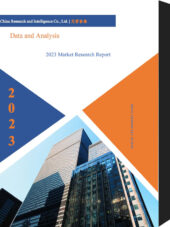Description
Cancer screening market in China
China’s demand for cancer screening has grown at a fast pace in the past decade. Cancer is one of the most significant healthcare burdens in China. The Chinese economy maintains a high pace of growth stimulated by the consecutive increase in capital investment. The cancer screening market in China is expected to reach USD 1.5 Bn by 2023 at 14 % CAGR.
The cancer screening market in China is classified by end users, screening type and applications. By end users, it is further classified into hospitals, laboratories and independent physicians and clinics. By screening type it is classified into laboratory, genetic, biopsy, imaging and endoscopy testing. By application type, it is further classified into lung, breast, melanoma, kidney and colorectal cancer.
Key growth factors
Rise in the population along with an increase in the patient pool and favourable government policies is a key driver for the market. Also, there is an increase in the aging population, growing levels of pollution and a more sedentary lifestyle.
Threats and key players
Providing drugs at lower prices along with ensuring affordability as well as accessibility will be a major threat for the region. Transparency in medical treatment is being been demanded by people, hence, provision of accurate and proper treatment will be a disguised opportunity.
The key players operating in the valve market are Quest Diagnostics, Hologic Inc., Qiagen, F. Hoffmann-La Roche AG and Abbott Laboratories.
What is covered in the report?
1. Overview of the cancer screening market in China.
2. Market drivers and challenges in the cancer screening market in China.
3. Market trends in the cancer screening market in China.
4. Historical, current and forecasted market size data for segments based on end users (hospitals, Laboratories, and independent physicians and clinics).
5. Historical, current and forecasted market size data for segments based on screening type (Laboratory, genetic, biopsy, imaging and endoscopy testing).
6. Historical, current and forecasted market size data for segmentation based on application (lung, breast, melanoma, kidney and colorectal cancer).
7. Analysis of the competitive landscape and profiles of the major companies operating in the market.
Why buy?
o Understand the demand for cancer screening market in China to determine the viability of the market.
o Identify the developed and emerging markets where cancer screening market in China is sold.
o Identify the challenge areas and address them.
o Develop strategies based on the drivers, trends and highlights for each of the segments.
o Evaluate the value chain to determine the workflow and to get an idea of the current position where you are placed.
o Recognize the key competitors of this market and respond accordingly.
o Knowledge of the initiatives and growth strategies taken up by the major companies and decide on the direction for further growth.
o Define the competitive positioning by comparing the products and services with the key players in the market.



